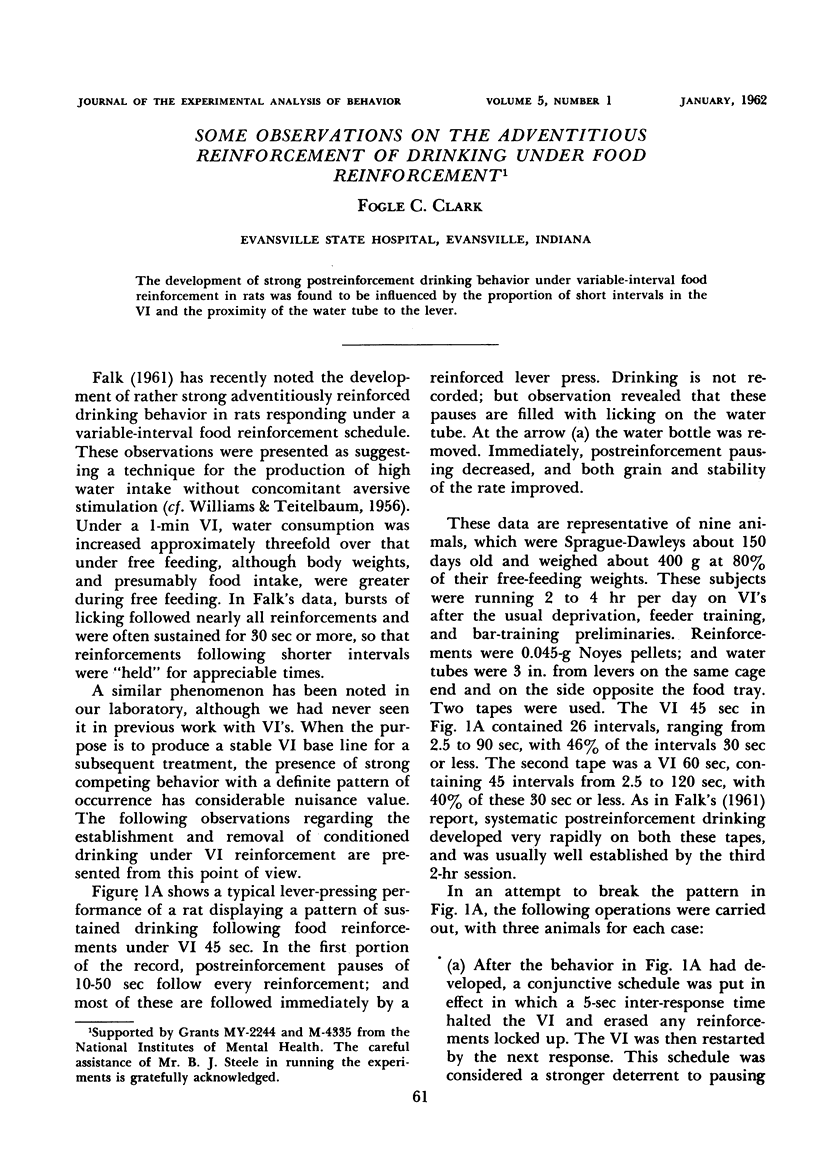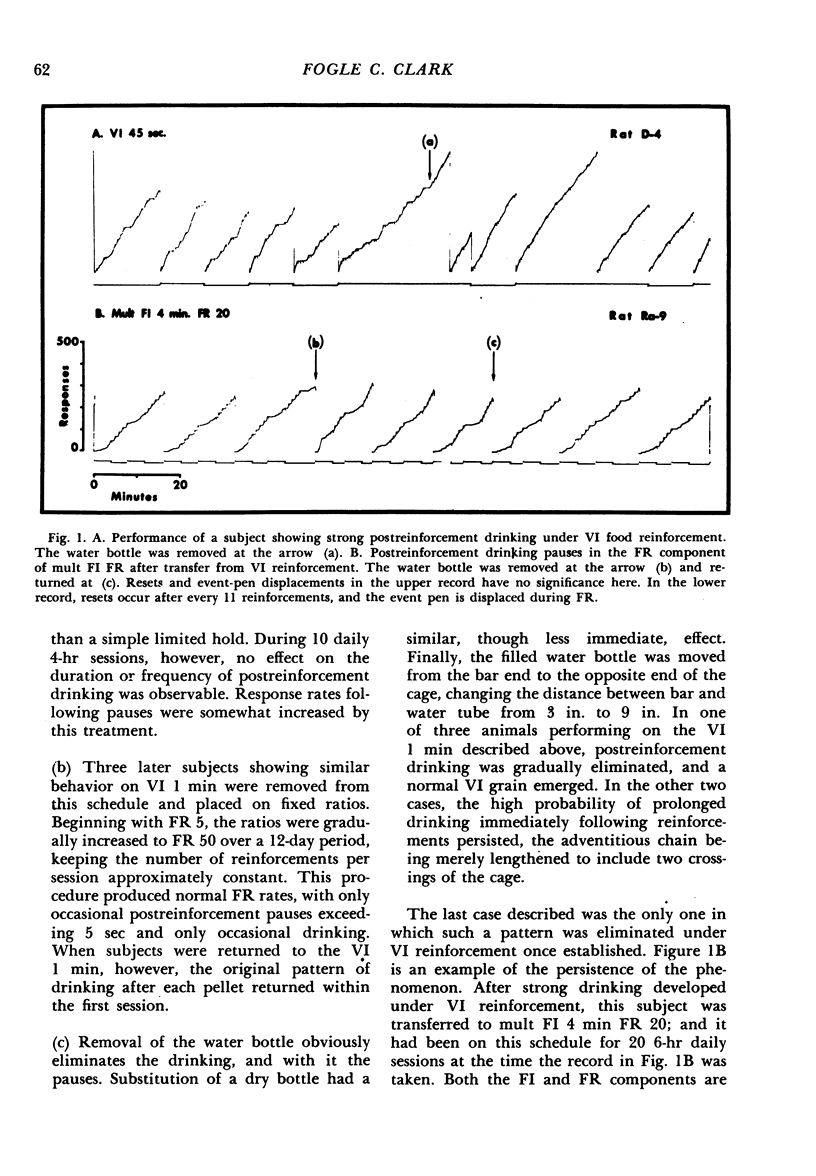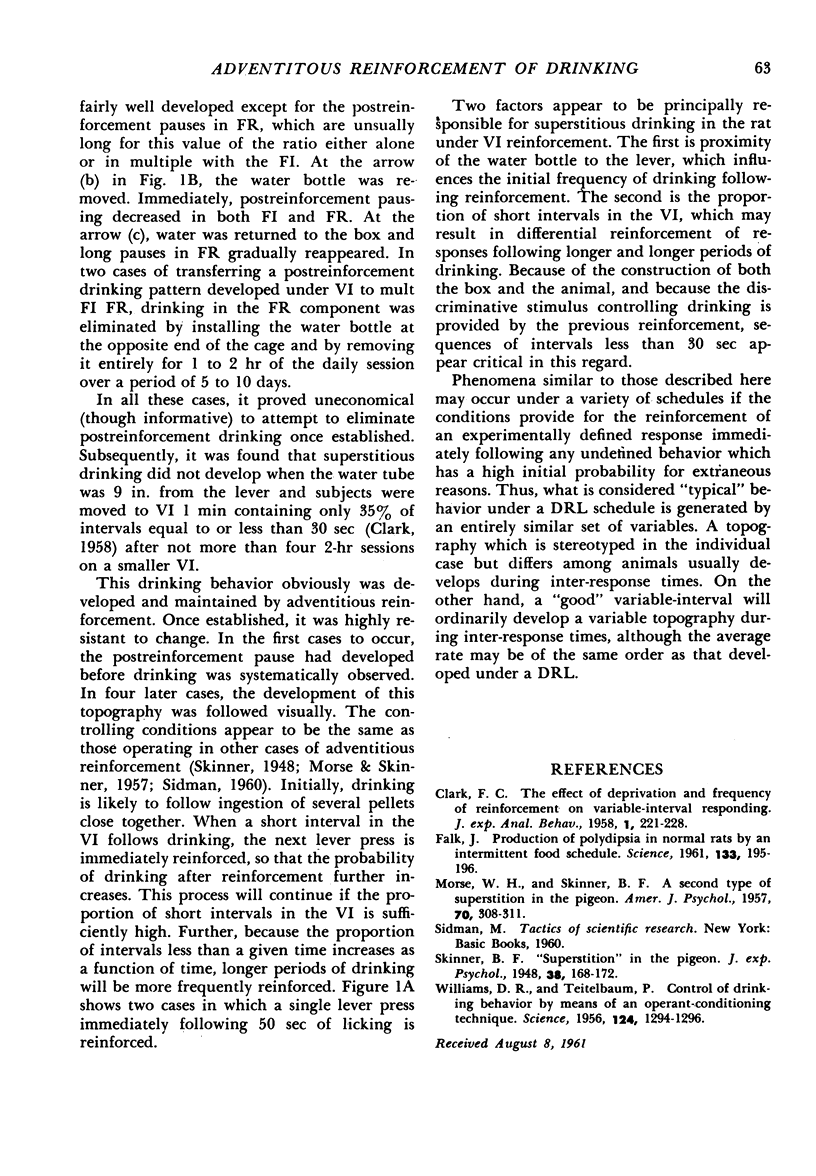Abstract
The development of strong postreinforcement drinking behavior under variable-interval food reinforcement in rats was found to be influenced by the proportion of short intervals in the VI and the proximity of the water tube to the lever.
Full text
PDF


Selected References
These references are in PubMed. This may not be the complete list of references from this article.
- Clark F. C. The effect of deprivation and frequency of reinforcement on variable-interval responding. J Exp Anal Behav. 1958 Aug;1(3):221–228. doi: 10.1901/jeab.1958.1-221. [DOI] [PMC free article] [PubMed] [Google Scholar]
- FALK J. L. Production of polydipsia in normal rats by an intermittent food schedule. Science. 1961 Jan 20;133(3447):195–196. doi: 10.1126/science.133.3447.195. [DOI] [PubMed] [Google Scholar]
- MORSE W. H., SKINNER B. F. A second type of superstition in the pigeon. Am J Psychol. 1957 Jun;70(2):308–311. [PubMed] [Google Scholar]
- TEITELBAUM P., WILLIAMS D. R. Control of drinking behavior by means of an operant-conditioning technique. Science. 1956 Dec 28;124(3235):1294–1296. doi: 10.1126/science.124.3235.1294. [DOI] [PubMed] [Google Scholar]


